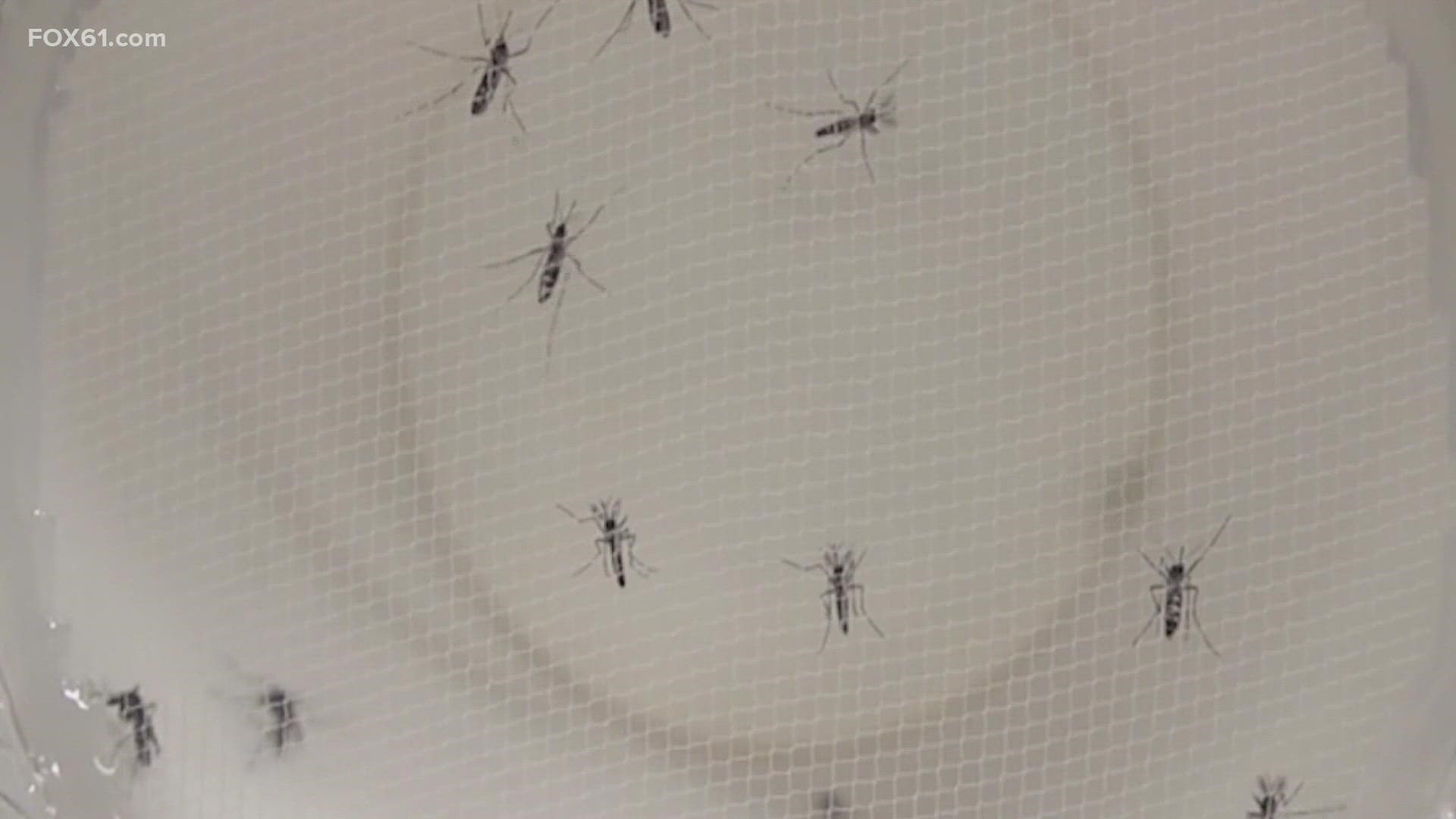NEW HAVEN, Conn. — The first human case of West Nile Virus has been detected in New Haven County, the state Department of Public Health (DPH) told FOX61.
The patient is a man in his 70s. He was hospitalized and later released as his recovery continues.
"The identification of the first case of West Nile virus-associated illness emphasizes the potential seriousness of this infection," said DPH Commissioner Manisha Juthani, MD. "As we approach the cooler weather and the holiday weekend, it still is important to take precautions to avoid mosquito bites. Using insect repellent, covering bare skin, and avoiding being outdoors during the hours of dusk and dawn are effective ways to help keep you from being bitten by mosquitoes."
The mosquitoes that carry West Nile Virus live mostly in urban and suburban areas. They are most active between dusk and dawn.
Philip Armstrong, ScD, a medical entomologist at the Connecticut Agricultural Experiment Station, said they expect the risk for West Nile Virus will continue until October. He said, this year could be worse than others.
"This summer has been the perfect conditions for West Nile Virus," he said.
Thanks to hot temperatures and the drought we have been experiencing.
"Those heatwaves will really help accelerate the life cycle of the mosquito. The virus itself can also replicate faster within the mosquito," Armstrong said. "Most mosquitoes do better when there’s a lot of rain but interestingly a mosquito that transmits West Nile virus actually does better when it's drier," he said.
West Nile is the most prevalent mosquito-borne disease in the United States.
Eight out of 10 people with the virus do not develop symptoms. One out of five people who are infected develops West Nile Fever. This illness includes fever, body aches, joint pain, headache, and a rash. One in 150 people develop a serious central nervous system illness. One in 10 of those cases is fatal.
There are several ways to reduce mosquitoes around your home.
- Eliminate standing water suitable for mosquitoes. Dispose of water-holding containers, such as ceramic pots, used tires, and tire swings.
- Drill holes in the bottom of containers such as those used for recycling.
- Clean clogged roof gutters.
- Turn over objects that may trap water when not in use, such as wading pools and wheelbarrows.
- Change water in bird baths on a weekly basis.
- Clean and chlorinate swimming pools. When pools are not in use, use pool covers and drain when necessary.
When outdoors you can reduce your chance of being bitten by a mosquito by:
- Minimize outdoor activities at dusk and dawn when mosquitoes are most active.
- Wear shoes, socks, long pants, and long-sleeved shirts. Clothing material should be tightly woven and loose-fitting.
- Use mosquito netting when sleeping outdoors.
- Consider the use of CDC-recommended mosquito repellents, containing DEET, picaridin, oil of lemon eucalyptus, IR3535, or 2-undecanone, and apply according to directions, when it is necessary to be outdoors.
- When using DEET, use the lowest concentration effective for the time spent outdoors (for example, 6 percent lasts approximately two hours and 20 percent for four hours) and wash treated skin when returning indoors. Do not apply under clothing, to wounds or irritated skin, the hands of children, or to infants less than two months old.
- Be sure door and window screens are tight fitting and in good repair to avoid mosquito bites when indoors.
--
Ashley RK Smith is an assignment desk editor at FOX61 News. She can be reached at asmith@fox61.com
Have a story idea or something on your mind you want to share? We want to hear from you! Email us at newstips@fox61.com
HERE ARE MORE WAYS TO GET FOX61 NEWS
Download the FOX61 News APP
iTunes: Click here to download
Google Play: Click here to download
Stream Live on ROKU: Add the channel from the ROKU store or by searching FOX61.
Steam Live on FIRE TV: Search ‘FOX61’ and click ‘Get’ to download.

